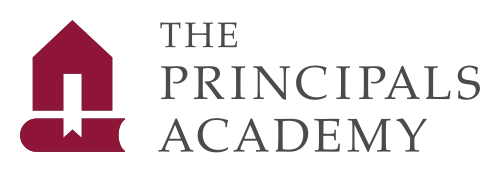Do you know what makes me a happy pensioner? I’m teachable. I’m not done learning.
Being a principal meant that learning was my daily currency, but, when that ended, I wanted to use nearly three decades of experience as a head to delve deeper into school leadership and to share insights with leaders past and present in the best interests of South Africa’s super-challenging education landscape. And I’ve learned more since ‘retiring’ than I learned throughout my career. I am one of, hopefully, thousands of retired professionals, in one non-governmental non-profit or another, investing in the future of our young people. Your turn will come.
If you are a PAT principal, you’re teachable, too. You will have been visited by one of our coaches to gauge your willingness to embark on a partnership in learning through mentorship, collaboration and the valuable prospect of a highly rated business school initiative. There’s no doubt that the modern principal is the school’s Leading Learner, and, if that’s not the case, learning at the school will suffer. They say the greatest enemy of learning is knowing. Not just that, but, as a principal reminded me, we learn very little while we are doing all the talking.
One may think that in being teachable one is demonstrating humility, but that’s the whole point; leadership requires us to put ourselves out there, to lead and to learn as much as possible on the way. Teachability is not about competence or capacity; it’s about attitude and a willingness to learn, unlearn, relearn.
As principals we are always on the lookout for professional friends or mentors who stretch us. In a coaching partnership, we strive to grow, we ask for feedback, and we try to respond well to it. We like to visit other principals who inspire us. We like to attend events that prompt us to pursue change and we are always in search of a book that challenges us to think in a new way.
Every principal knows just how valuable is the exceptional teacher. And, usually, that expertise and effectiveness was honed through embracing change, seeking out opportunities, an openness to learning, a deep desire to keep improving and a commitment to keeping abreast of teaching technology.
It was Albert Einstein who said, ‘I have no talent. I am only passionately curious.’
Teachability is one of the main criteria we look for in the novice teacher. A seasoned grade or subject head has such a big role to play in developing required standards of professionalism, subject specific competence and classroom dynamics. Highly functional schools foster many such communities of practice which take teaching to the same level internship takes the novice medical doctor. From day one a young teacher or doctor serves a child or a patient in need of high quality ‘treatment’.
The same is true in the sporting world. A footballer may be very talented but may never make it because of not being coachable – an aptitude which makes one a key component in a complex and technically proficient game plan.
One of the interventions the Principals Academy uses is the deployment of Teacher Support Professionals (TSP) in either Foundation Phase or in English or Mathematics in particular primary schools. Catherine Meier, the TSP, in one of the schools I serve, received a message at the end of last term from a Gr R practitioner at Zerilda Park Primary which gratefully recognised the support received with phrases like ‘absolute pleasure’, ‘bringing us back to basics’, ‘taking us beyond our own imaginations’, ‘helping our learners to understand a concept’, ‘you were meant to help us’, ‘you bring us hope’ and ‘thank you for coming into our school’. How nice is that?
Teachability really is an important life skill. One blog I read, Fresh Horizons by South African performance coach, Mandy Russell, was entitled ‘Teachability – To Keep Leading, keep Learning’. She quoted Basketball coach, John Wooden, ‘It’s what you learn after you know it all that counts.’
Till next time.
Paul
Coach/Mentor
The Principals Academy Trust
No: 07/24
02 May 2024
